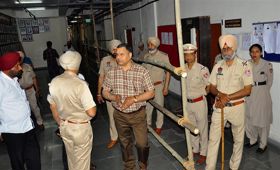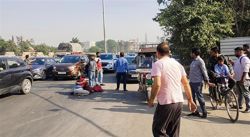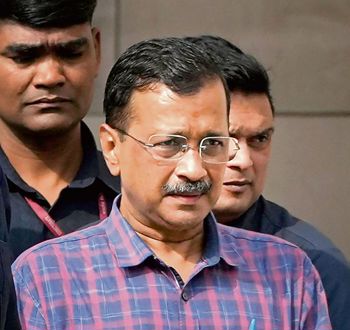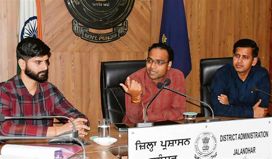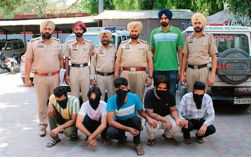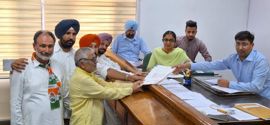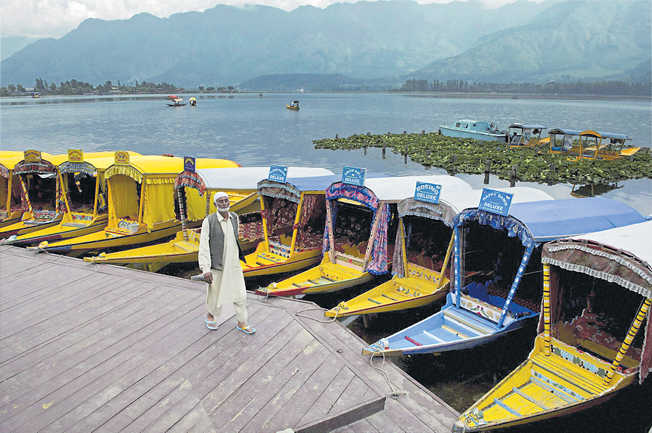
The tourist season has taken a hit due to the prolonged violence in the Valley.
Lt Gen VG Patankar (retd)
IT is still summer in Kashmir. The lush green foliage of the magnificent chinar trees is in full splendour. Come autumn and the leaves will turn yellowish and then to shades of copper-red; their final hurrah before falling off, leaving the chinars looking forlorn. That is till the snow envelopes them and the landscape.
Desolation appears to have come early this year to Kashmir. For nearly two weeks, after Hizbul Mujahidin's Burhan Wani was killed, Kashmir is looking desolate. Streets that should be teeming with locals and tourists, are empty. No vendors or hawkers flaunting their wares; not even the shikarawalas jostling for space on the shores of the Dal and Nageen. Instead, grim-looking policemen dot street corners.
The mood of the people appears to have changed the atmospherics. While ordinary people are sad and weary, the opportunists are having a heyday. Separatists from the Hurriat to the Hizbul are cashing in on an opportunity that has dropped into their lap. Even Pakistan's Nawaz is not being “Sharief” and is making inflammatory pronouncements from the safe havens of Islamabad. The barely three-month-old government of Chief Minister Mehbooba Mufti is facing its first major ordeal; baptism by fire, almost literally.
In 2010, when agitators took to stone-pelting in a change of tactics, the police was taken unaware and had to resort to firing to disperse unruly mobs; regrettably over a hundred lives were lost, many times that number were injured. The casualties included many policemen. This time, the policemen are more circumspect and cautious in their response and, as a result, taking comparatively more casualties. The state government wants to be firm in dealing with violence but also wishes to appear concerned about the safety of ordinary people. Its a tightrope walk that calls for balance and finesse at every step.
While the Jammu and Kashmir police, assisted by additional forces placed at their disposal, will continue to do their part to control the conflagration to bring back normalcy at the earliest, it is for the politicians to pick up the gauntlet now. Leadership of all major political parties, particularly that of the PDP, the NC and even the new-entrant the BJP, need to show sagacity by initiating action.
To begin with, the ruling coalition should step out in the streets to demonstrate their sincere concern for the ordinary Kashmiri. They could start by meeting families of those killed or injured in the violence, (including those of policemen) and offer not just solace but even ex gratia payment on the spot. That will cool tempers, after which they could even take a calculated risk and hold an all-party peace march at an appropriate time and place. It is time for the NC to recover some lost ground. People were dissatisfied with the actions (or lack of them) of the then Abdullah administration during and after the devastating floods in 2014. Much of the government's own machinery, communications and rescue systems were under the deluge but ordinary people only see what reaches them and not why it could not reach. Now is a good opportunity for the NC, ably led by their youthful leader, to reach out to people. For the BJP, it is an opportunity to show genuine concern by equally showing their presence alongside their political ally; their saffron hues would not make this easy but then it is a case of nothing risked, nothing gained. The leadership across the political spectrum is led by a relatively young generation which may find coming together on a single platform difficult. This is where the state could benefit if the Governor could act as a catalyst in bringing them together to help them in crossing the rubicon.
The government in Delhi must step in to do its share. Senior Cabinet Ministers could visit the Valley and not just hold parleys with the state functionaries but also with well-respected citizens and opinion-makers. Next, they should also launch various development schemes that were announced by the Prime Minister during his earlier visits; putting money where their mouth is.
The media has an important role to play. The state should avoid muzzling its voice but the media itself could exercise discretion. Lessons from its unfettered exuberance during the Kargil war and later the Mumbai carnage of 2008 could serve as lessons in discretion. Finally, let this crisis be the trigger to put together a frame-work for Kashmir; I am tempted to call it Kashmir strategy or even a Kashmir policy. Whatever it is called, it must be comprehensive and not unwieldy. There is no dearth of experienced people who understand Kashmir — all of it, not just the Valley. A non-partisan, well-led group (and not another “expert committee”) could discuss to put a frame-work in place; it could then be debated with a group comprising representatives of major political parties at the Centre and the state. Inputs should be sought from the armed forces, intelligence agencies and the bureaucracy. Fortunately, we have eminent and experienced hands like the present Governor of Jammu and Kashmir. Besides being the Governor of a crucial state, he has handled key appointments at the Centre and has also been an interlocutor for Jammu and Kashmir. His guidance will help in the proposed framework.
In the early 1960s, the anti-Hindi agitation in the South had all the southern states in flames; rioting and damaging anything remotely representing the Central government was attacked. In its midst came the Chinese aggression in 1962. Annadurai, who led the the agitation in the main, addressed a mammoth rally in which he stressed that the time had come to suspend the agitation and instead focus on strengthening the hands of the Prime Minister. The South went silent almost immediately thereafter. All political parties across the four states stood together as one for India. With Pakistan also stoking the fires in Kashmir the comparison is not far-fetched; is there a lesson for us here?
The writer is a former General Officer Commanding of the Srinagar-based 15 Corps





















